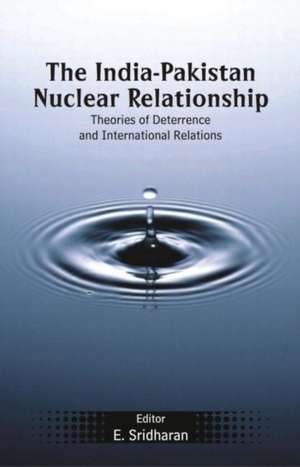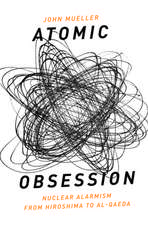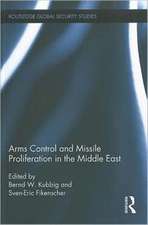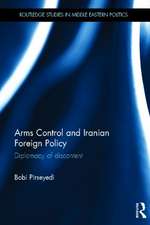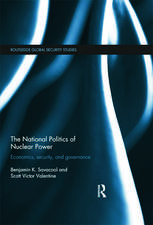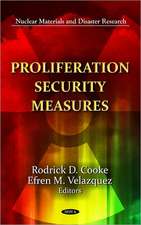The India-Pakistan Nuclear Relationship: Theories of Deterrence and International Relations
Editat de E. Sridharanen Limba Engleză Hardback – 7 mar 2007
Several books have been written on India’s nuclear programme, but these have been mostly analytical histories. The India-Pakistan Nuclear Relationship is a new departure in that it is the first time that a group of scholars from the South Asian subcontinent have collectively tried to apply deterrence theory and international relations theory to South Asia.
| Toate formatele și edițiile | Preț | Express |
|---|---|---|
| Paperback (1) | 442.50 lei 6-8 săpt. | |
| Taylor & Francis – 9 aug 2018 | 442.50 lei 6-8 săpt. | |
| Hardback (1) | 948.18 lei 6-8 săpt. | |
| Taylor & Francis – 7 mar 2007 | 948.18 lei 6-8 săpt. |
Preț: 948.18 lei
Preț vechi: 1156.31 lei
-18% Nou
Puncte Express: 1422
Preț estimativ în valută:
181.46€ • 188.74$ • 149.80£
181.46€ • 188.74$ • 149.80£
Carte tipărită la comandă
Livrare economică 14-28 aprilie
Preluare comenzi: 021 569.72.76
Specificații
ISBN-13: 9780415424080
ISBN-10: 0415424089
Pagini: 308
Dimensiuni: 138 x 216 x 27 mm
Greutate: 0.52 kg
Ediția:1
Editura: Taylor & Francis
Colecția Routledge India
Locul publicării:Oxford, United Kingdom
ISBN-10: 0415424089
Pagini: 308
Dimensiuni: 138 x 216 x 27 mm
Greutate: 0.52 kg
Ediția:1
Editura: Taylor & Francis
Colecția Routledge India
Locul publicării:Oxford, United Kingdom
Public țintă
PostgraduateCuprins
1. Introduction: Subcontinental Perspectives on Deterrence Theory, International Relations Theory and South Asia E. Sridharan 2. International Relations Theory and the India-Pakistan Conflict E. Sridharan 3. Deterrence and Nuclear Use: Doctrines in South Asia Rifaat Hussain 4. Conceptualising Nuclear Deterrence: Pakistan’s Posture Rasul B. Rais 5. The China Factor in South Asia’s Nuclear Deterrence Swaran Singh 6. Theories of Deterrence and Nuclear Deterrence in the Subcontinent Arvind Kumar 7. Operation Vijay and Operation Parakram: The Victory of Theory? W.P.S. Sidhu 8. South Asia: The Irrelevance of Classical Nuclear Deterrence Theory Bharat Karnad 9. International Relations Theory and Minimum Deterrence Rajesh M. Basrur 10. The Threat of Unintended Use of Nuclear Weapons in South Asia Rajesh Rajagopalan 11. The Stability-Unstability Paradox in South Asia Varun Sahni
Notă biografică
Dr Sridharan is Academic Director of the University of Pennsylvania Institute for the Advanced Study of India, New Delhi. He is Ph.D from the same university where he studied political science. He has held visiting appointments at the University of California, Berkeley, London School of Economics, and Institute for Developing Economies, Tokyo. Dr Sridharan’s research interests are comparative politics and political economy of development, party systems and coalition politics, and international relations. He is the author of The Political economy of Industrial promotion: Indian, Brazilian and Korean Electronics in Comparative Perspective; and co-editor of India’s Living Constitution : Ideas, Practices, Controversies, and India in the Global Software Industry.
Descriere
This is the first book in which a group of scholars from the South Asian subcontinent have collectively applied deterrence theory and international relations theory to South Asia.
